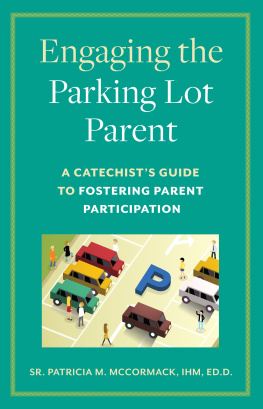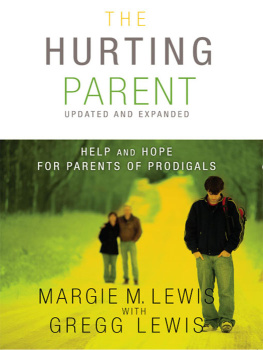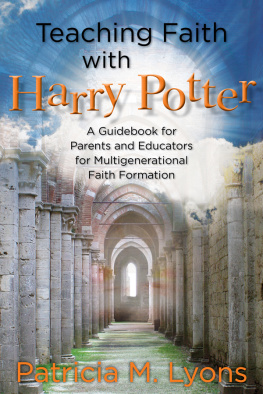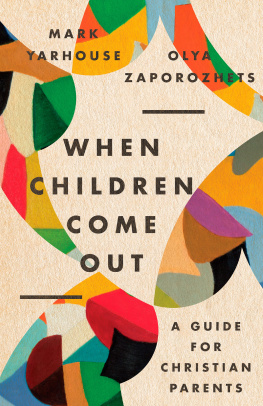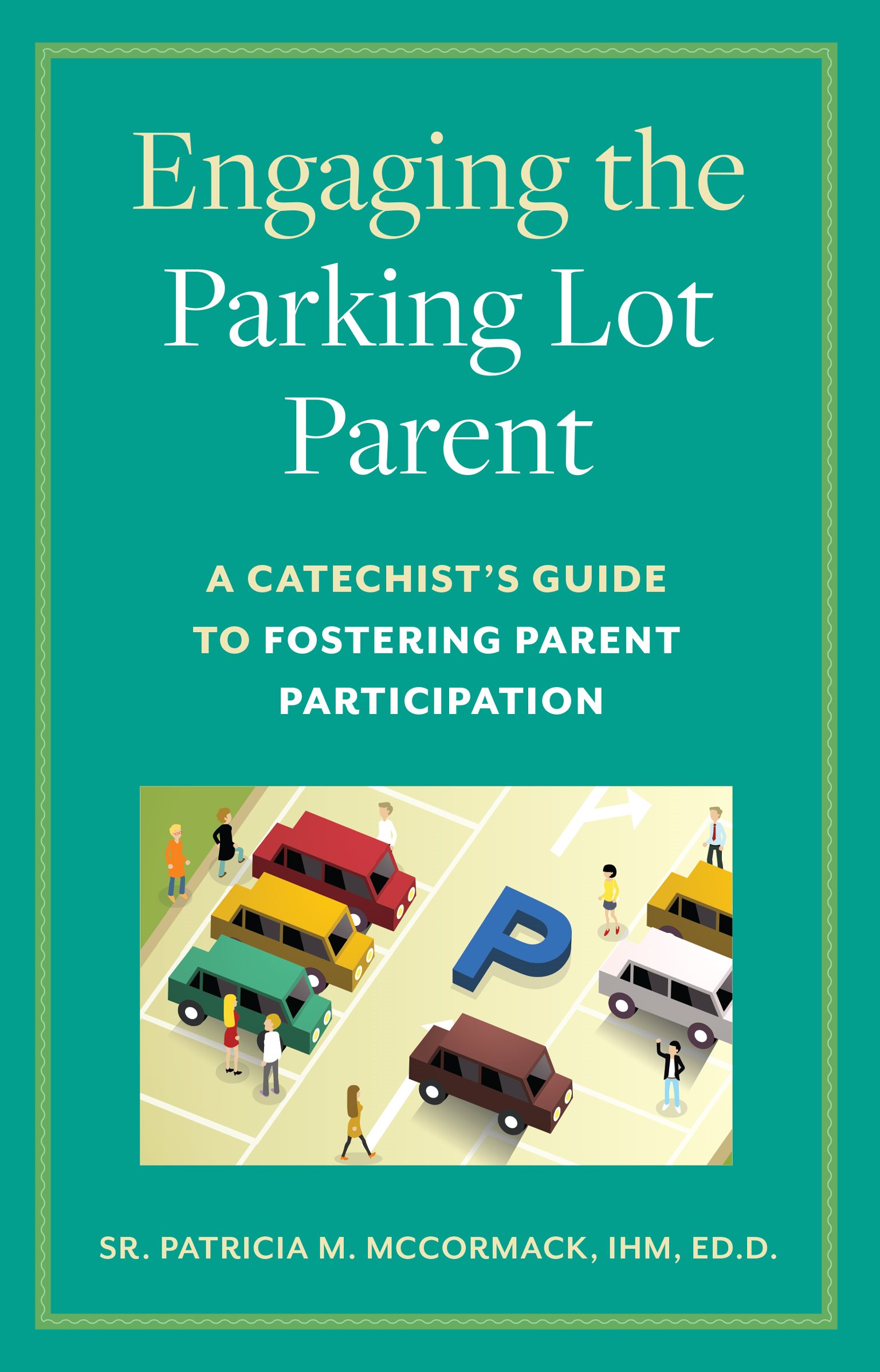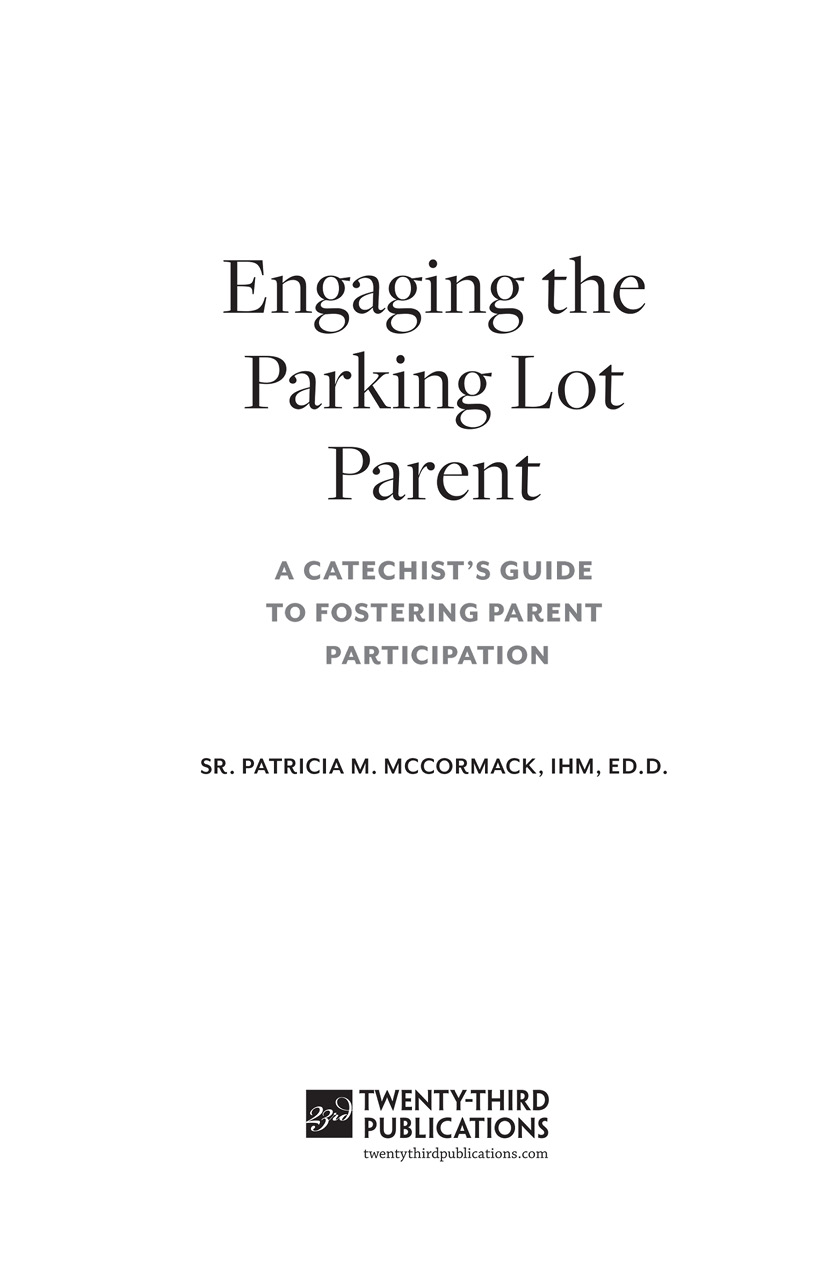Copyright 2017 Sr. Patricia M. McCormack. All rights reserved.
No part of this publication may be reproduced in any manner without prior written permission of the publisher. Write to the Permissions Editor.
Introduction
It was time for breaking open the word with the little children. Young minds eagerly listened to the account of Jesus calling the twelve apostles and sending them, two by two, to preach the Good News. The six-year-olds were spellbound. After the reading they shared how they could each be an apostle for Jesus throughout the following week. Their catechist, Miss Emma, told the class about a particular way they could be apostles that very day. She distributed a flyer advertising a Dads Retreat. She encouraged the children to be apostles to their fathers by placing the flyer in their hands. As an extra incentive, Miss Emma offered a beautiful statue of Jesus as a prize to the first student who brought back the invitation signed and dated by his or her father.
While the children were engaged in their final activity, little Keira burst into the room with a signed flyer in hand. She happily announced, I won! I won! I am the first apostle! My dad signed the paper!
Miss Emma was shocked that Keira had left the session without her knowledge. She was also stunned that Keira interrupted the community at Mass to find her father. And she felt threatened by the mutiny in the room as other students called out, No fair! No fair! Miss Emma quieted the class and then asked Keira how she managed to be the first apostle. Did you go into church and interrupt Mass? Oh, no! replied Keira. Its my dads turn to drive to church, so hes in the parking lot waiting for me.
Dad was in the parking lot rather than at Mass. Such a scene is not uncommon. A sizable number of parents spend an hour in their cars while their children are attending Mass or a faith-formation class. One catechetical leader describes them as the taxi community.
This scenario raises a critical question among pastors, catechetical leaders, and catechists: How do we draw parents into the parish and out of whatever parking lot keeps them disengaged and non-participative?
In my role as a national formation-education consultant and public speaker, I deliver presentations throughout the United States to parents, teachers, catechists, catechetical leaders, and school administrators. These groups often bemoan the lack of parent participation in the formation of their offspring. In many instances catechists report how students are unprepared for class, parents are disengaged from the process of faith formation, and religious/spiritual development of children seems limited to the time spent in a religion class. They report poor church attendance among the adults.
The problem runs deeper than not just showing up. In 1990 Saint John Paul II expressed concern that entire groups of the baptized have lost a living sense of the faith, or even no longer consider themselves members of the Church, and live a life far removed from Christ and his Gospel. In this case what is needed is a new evangelization or a reevangelization ( Mission of the Redeemer , 33).
What can be done to encourage, support, and affirm parents so that they feel invited and inspired to engage in their own faith development as well as that of their children? In this book I offer ideas for reaching out to those who are minimally, marginally, or insufficiently involved in the faith formation of their children and who are themselves in need of evangelization. Thus the goal of this book is to lead parents from the parking lot of non-involvement to participation in the faith formation of their children and ultimately to a personal encounter with Jesus.
Chapter 1
A VIEW FROM THE PARKING LOT
How do parents view their role when it comes to the faith formation of their children? Some feel inadequate as the spiritual leader in the family. Others note the need for someone other than themselves to form faith within their children. Liz Lockhart, Parent and Youth Faith Formation Director at St. Joseph Parish, Marion, Iowa, offers a keen insight into this dilemma:
Parents are willing to abdicate our role as teachers of our children in a variety of areassports, academic tutoring, and even hiring people to drive our children to activities when we are too busy to do so. We have no hesitance when it comes to expecting others to teach our children the Catholic faith, especially if we feel inadequate in our attempts to do so. The danger is forgetting that anything that isnt modeled in the home probably wont take root in our childrens lives over the long haul. Furthermore, those experts may not know much more than we do. They just are more willing to spend the time to learn it and pass it along.
I hear similar sentiments during my own interactions with parents. When discussing the difference between their role as parents and that of the catechist, one mother noted that the catechist has the teacher edition of the book. Another parent piggybacked on that remark by saying, Catechists are trained; we are not. A dad pointed out that catechists are deeply involved in the parish and have knowledge of church teachings that he lacks. Their responses affirm the role of the catechist and reflect a trust in what he or she is doing for their children.
REASONS FOR DISENGAGEMENT
In order to overcome the obstacles to engagement by some parents, its helpful to name them first. Then we can more effectively develop strategies that invite involvement and participation. Here are three common obstacles I have come across in the course of my work with parents.
1. Inadequate knowledge of their faith and a need for evangelization
The need for evangelization or reevangelization stems, in large part, from a lack of knowledge or understanding of Catholic teachings and practices. Parent explanations vary for their surface knowledge of the Catholic faith but here are some of the perceptions I have come across:
- Post-Vatican II changes in liturgical worship as well as changes in some church disciplines have caused some 1970s parents (current-day grandparents) to think, What I was taught might be different today. And so they hesitate in passing on church teaching. It is not at all unusual for a parent or grandparent to wonder aloud, Is it still true that? As a result, some of these 1970s parents feel confused and have lost confidence in their ability to instruct their children and grandchildren in the practices of the faith. They conclude that it is better to say nothing rather than chance being incorrect. As a consequence, they feel illiterate in terms of faith formation and have ceased to be a source of Catholic formation for their children. Their offspring (current-day parents) grew in a spiritual vacuum. When they became parents themselves they felt inadequate to assume the role of First Heralds of the Gospel. The cycle continued to the present generation of parents.

